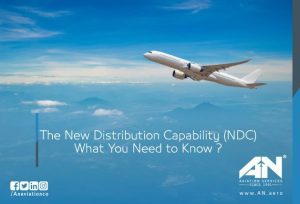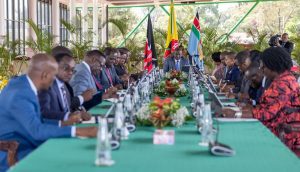Africa’s tourism sector was on an upward trajectory with an average growth of 5% until Covid-19 struck with its devastating effects causing disruption for the global economy and the tourism sector to be specific.
The silver lining in the last 24-36 months has been how partnerships and collaboration for the tourism sector to accelerate recovery.
The power of tourism particularly in Africa cannot be over emphasised enough as it offers an incredible opportunity to transform the lives of many on the continent. As the United Nations Secretary Antonio Guterres succinctly puts it, ‘’Tourism can provide decent jobs, helping to build resilient sustainable, inclusive economies and societies that work for everyone’’.
Recovery of the tourism sector is well underway and shaping up so well. Based on UNWTO’s forward-looking scenarios for 2023, international tourist arrivals could reach 80% to 95% of pre-pandemic levels this year, depending on the extent of the economic slowdown, the ongoing recovery of travel in Asia and the Pacific and the evolution of the Russian offensive in Ukraine, among other factors. The latest UNWTO barometer gives it further impetus as Africa recovered about 65% of pre-pandemic levels.
It is a positive omen that we need to maintain and further up with the needed policies to make the maximum push.
The meetings, incentives, conferences, and Exhibitions (MICE) sector which is One of the fastest-growing sectors of the global tourism industry is an area in Africa that can help sustain the continent’s sector. With the enormous benefits and ROI that it generates, with some little effort and investments, it could be gold for the tourism industry.
Facts
The World Travel & Tourism Council estimates the travel and tourism industry globally to be worth some US$7 trillion.it is estimated that the global MICE industry is worth around US$650 billion to US$700 billion, a sizeable figure. Africa is forecasted to have a paltry market share of 2% of it.
The above staggering data is just the tip of the iceberg which many other multiplier efforts beyond calculable. The illustration makes a serious case for Africa to position MICE in their strategies to drive tourism, their economies, and trade.
Prior to the covid-19 pandemic, several countries expressed the intent of making MICE a core pillar in their development agenda and went further in putting in place the governance structures to get it going. From the growing list of convention bureaus to a dedicated desk for MICE/Business events in itself is a commendable step. Uganda, Ethiopia, Ghana, Kenya, Malawi, and Zambia are few of the countries have made commitments for mice.
In Africa, powerhouses such as South Africa and Morocco and recent dominant Rwanda have been pace setters in consolidating and growing their market share of the pie.
As the tourism actors begin with their key roadshows and trade events such as meetings Africa, it is incumbent on its leaders and stakeholders to commit themselves to the progress and development of the sector and the continent as a whole.
There cannot be any valid reasons why the continent is still struggling to take a giant step toward the elimination of artificial bottlenecks hampering movement and trade in the region. As so long as Africans are required to travel with a visa within the continent which in itself is not an easy task, the objective of taking advantage of the African continental area is a dead-on-arrival case. There ought to be a paradigm shift from the present situation to an efficient and smart way of doing things in our quest to truly attain the goals of the ”Africa we want” Agenda.
Even though the recent 2022 Africa visa openness report by the Africa development bank indicates improvement in visa facilitation across the continent, it needs a whirlwind of a push to accelerate movement and trade to grow African economies.
African Union Commission Deputy Chairperson Dr Monique Nsanzabaganwa in reacting to the latest report said: “This edition links free movement to the development of regional value chains, investments, trade in services and the AfCFTA. There is greater recognition that human mobility is key to Africa’s integration efforts.”
Meetings Africa, a platform created by South African Tourism has been a strong voice and effervescent force in mobilizing the business events industry and offering support and knowledge for Africa to grow this significant market segment. It has with other similar platforms encouraged and supported destinations to invest and commit to mice in its quest to grow tourism.
Now in its 17th year, the event is seeing the highest number of African participants coupled with other novelties to shape the new way of doing things in the industry. It is refreshing and welcoming for the continent to at least see a surge in the appreciation of MICE by decision-makers to drive its economy. As a private sector-led industry, the profound endorsement of the public sector is very significant as it will encourage the provision of necessary infrastructure to meet the demands of hosting small to mega events thus creating jobs for many in the ecosystem.
Three hundred and five exhibitors representing 15 African countries have confirmed their spots on the Meetings Africa 2023 trade floor. They will have the opportunity to interact with thousands of buyers from around the world expected at the event. The countries represented are Botswana, Eswatini, Ghana, Kenya, Mauritius, Uganda, Nigeria, Tanzania, Seychelles, Rwanda, Zambia, Zimbabwe, Angola, Malawi, and Mozambique.
According to South African Tourism Acting CEO, Themba Khumalo, the increase in the number of African exhibitors is an indication that leaders throughout Africa recognize the business events industry as vital to their economy. “As Africa’s economy shifts towards a technological future characterized by the Fourth Industrial Revolution, more nations are building their business events industries to attract foreign investors and businesses.”
Aside from offering the perfect avenue to trade and sign deals, meetings in Africa will unravel the many novelties and innovations developed by African entrepreneurs/groups to make businesses seamless and spur growth. An imperative to develop a robust MICE sector is the ability to be sustainable in all fronts and Africa’s enviable sustainability footprint will be on display during the show in Sandton.
Meetings Africa 2023 will be held at the Sandton Convention Centre from 27 February to 1 March bringing together 350 exhibitors and more than 1,000 buyers to the trading floor.
There will be insightful sessions across all three days at Meetings Africa 2022, with speakers focusing on creating a positive African narrative, the future of meetings, and the challenges business events face because of a lack of airlift in Africa.
Meetings Africa will once again offer the fine opportunity to accelerate the continent’s tourism recovery.
Harnessing the immense resources for the growth of the continent will require intentional and conscious efforts by all and sundry. Aviation expert, Sean Mendis is optimistic Africa’s aviation sector could see a strong rebound this year provided actionable measures are put in place to make airlines competitive, destinations accessible and build synergies among stakeholders towards a common approach for the realization of air travel objectives.
“In many parts of Africa, notably in West Africa, you find that the taxes charged by governments and authorities on travellers often exceed the fare travellers pay to the airlines to transport them. And when the airline is making $60 while you are paying the government $150 to travel for one hour by air, it immediately depresses the ability of people to be able to travel to the neighbouring countries to do business, explore the neighbouring countries to see the highlights of what the countries have to offer.’’ Sean Mendis.
Making tourism a transformative force for good will mean collaborating with all key stakeholders to create the enabling environment for businesses to thrive.
Source: Vanguard






